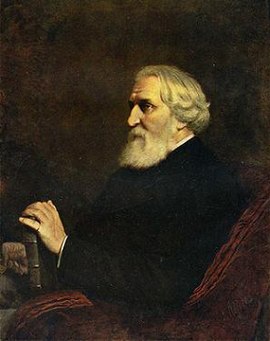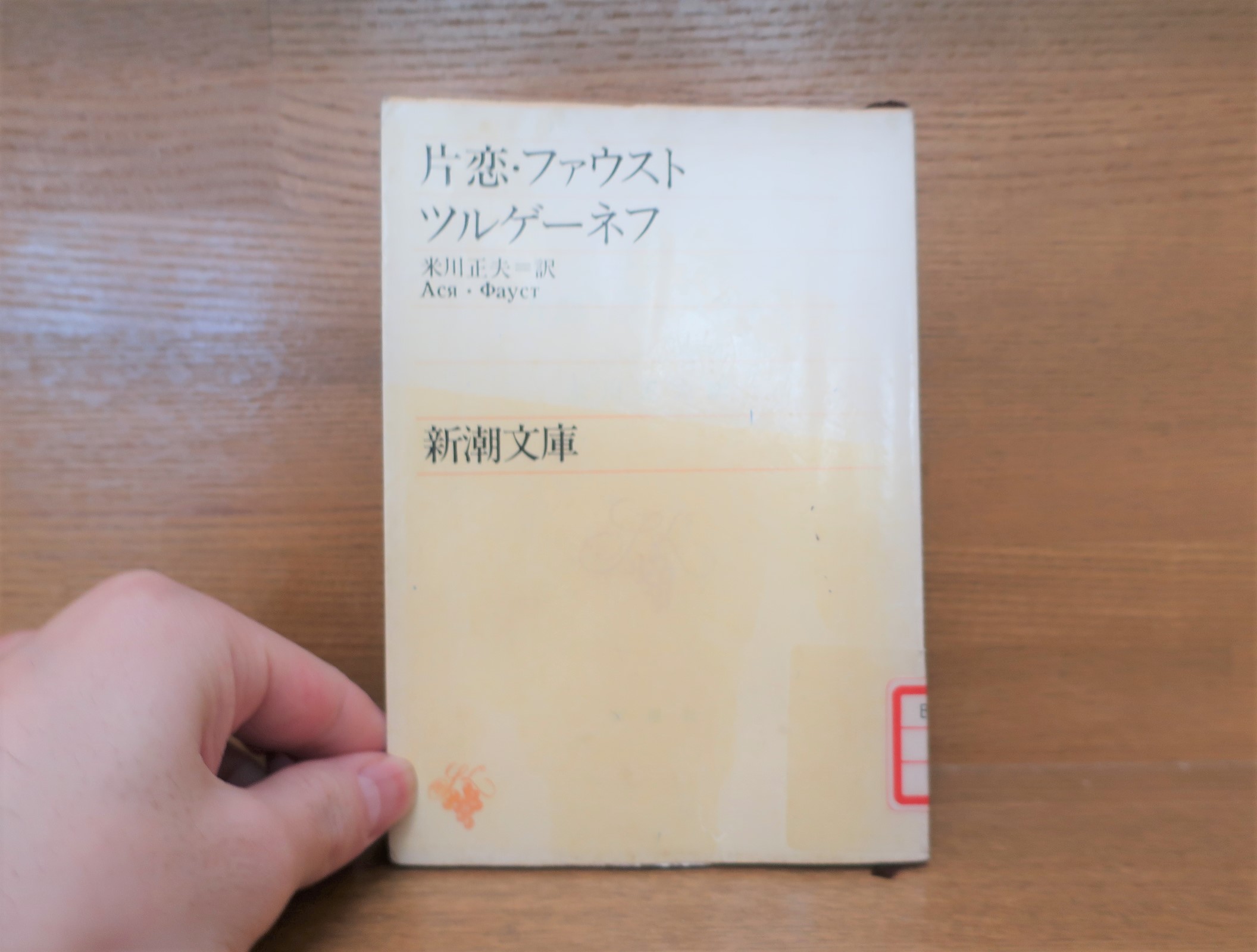Synopsis of Turgenev's "Asha (One Love)" - famous for its translation by Futabatei Shimei

Turgenev (1818-1883)Wikipedia.
Asha" is a medium-length novel published by Turgenev in 1858.
I read "Asha" in "Katakoi Faust," translated by Masao Yonekawa, Shinchosha.
The original title of this work is "Asha," but it is often referred to as "One Love" in translation, but in commentaries it is often referred to as "Asha," so we will use that title.
Let's take a quick look at the synopsis.
Asha, the heroine, is a fiery, intuitive, and passionate girl with an unusual birth and upbringing, who knows no falsehoods.
N.N. is a young man who has just graduated from college. On a trip abroad, he meets Asha and her siblings in a German town and falls faintly in love with Asha. Asha falls in love with him even more passionately than before.
N.N. is attracted to Asha, but hesitates when he thinks of the consequences of marrying the eccentric Asha. Asha asks N.N. for a snore session to find out his true feelings for her.
But when N.N. is forced by Asha to make an attitude decision, he refuses to accept her love, spitting out unsaid cautionary tales and blaming his partner for his thoughtlessness.
N.N. does not have the compassion to put himself in the other person's shoes to see how much courage it took for Asha to voluntarily decide to snore.
Asha's brother rushes off on his journey with his heartbroken sister. When N.N. visits the brother and sister's residence to ask Asha to marry him, it is after they have already left.
N.N. immediately followed the siblings, but was finally unable to see them again for good. ......
Kodansha "Sekai Bungaku Zenshu - 38 Turgenev" p380-381
Some line breaks have been made.
As some of you may have noticed in this synopsis, the romance in this work is truly "THE Turgenev".
The pattern is that the two fall in love, but when the moment comes, the man suddenly cools off and runs away.
This novel is also said to have autobiographical elements of his own. The translator's afterword in the paperback edition states
Asha" was written in 1857. It is probably the twin of Turgenev's middle novels, along with "First Love. According to my own secret discovery, "Asha" is, to some extent, a novelization of the author's own experiences during his years of study abroad in Germany.
The emotions that abound in it, the way he views nature, are all unique to Turgenev. At the time of writing, he was already in love with Madame Viardot, but he must have already foreseen his later years.
The novel ends with the words, "I am a lonely, single man without a family, and I am living my last years in a dull state of mind. It was a tragic life that Turgenev, at the age of thirty-nine, had already entered into a state of old age!
Shinchosha, translated by Masao Yonekawa, "Katakoi, Faust," p. 171-172
Some line breaks have been made.
As for his love affair with Mrs. Viardot, he had previouslyTurgenev, a lifelong celibate - his fated love with Madame Viardotarticle.
The love depicted in the story itself is said to have been created based on an episode from his young days as a student in Germany, but at the time of writing, it seems that his love for Madame Viardot had a profound effect on his psyche.
Masao Yonekawa, the translator, states that at the age of 39, he foresaw that he could not leave this woman for the rest of his life and that he would remain celibate.
Thoughts - From a Dostoevskyian Perspective
This novel is primarily a love story between Asha and N. N., though,Diary of a Hunter.This is still Turgenev's greatest charm from the era, his beautiful descriptions of scenes.
Afterword,
The landscape depiction in this work is also excellent. It is noteworthy that the artist's impressionistic style has changed from the precise depiction in "The Hunter's Diary" to a more impressionistic style in which many things can be perceived in simple brush strokes.
Shinchosha, translation by Masao Yonekawa, "Katakoi, Faust," p. 172-173
and it is a work in which the artist Turgenev is in his element.
Dostoevsky depicts a chaotic psychological drama in which one never knows what will happen next.
In a sigh-inducingly beautiful world, Turgenev depicts the drama of two people in sweet but bitter love.
It was a work that made this difference very clear. When I finished reading and watching this work, I wanted to read "The Idiot" again. The "Idiot" is also a work with many scenes, and unusually among Dostoevsky's works, the description of scenes is particularly significant.
Turgenev's "Asha" and Dostoevsky's "The Idiot" may be an interesting combination in terms of comparing the nature of the scene descriptions.
Asha" is less than 100 pages in the library, so it is easy to read. It can be read quickly. The style is also very easy to read. As expected of Turgenev. The words are simply connected, yet exquisitely beautiful.
The above is a synopsis of Turgenev's "Asha (One Love)" - famous for its translation by Futabatei Shimei.
Next Article.
Click here to read the previous article.
Click here for a list of Turgenev's recommended works.
Related Articles







































